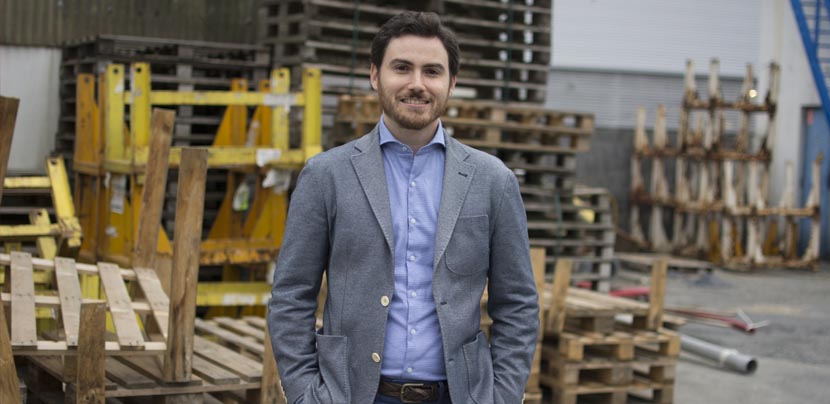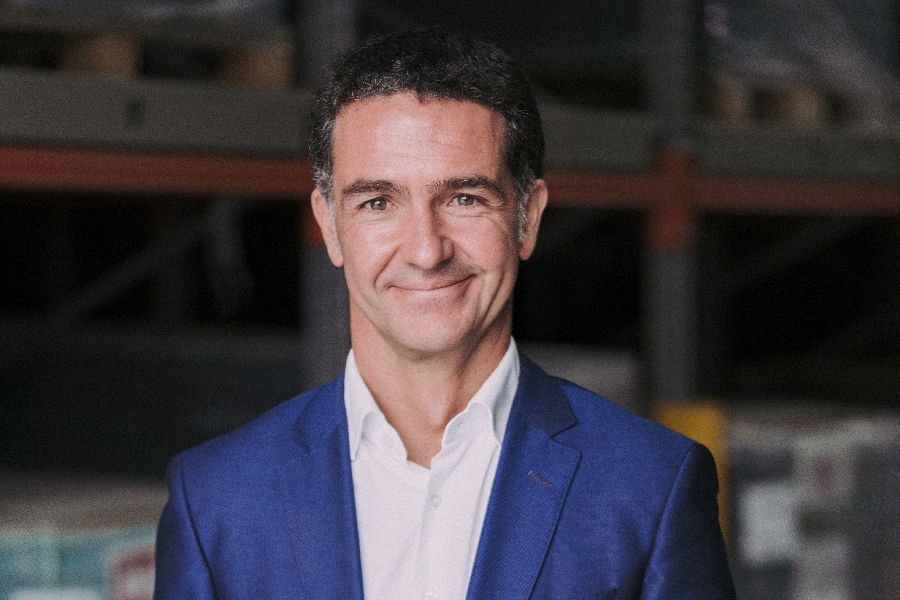THE DIY AND HOME MARKET FACES AN UNPRECEDENTED SUPPLY CRISIS
Supply problems and raw material price rises in all industries.
After a 2020 affected by the COVID19 crisis, which brought a huge drop in demand in the first half of the year, and a quick recovery in the second half, our sector has experienced an unprecedented revolution.
As individuals, we have put more value in our houses. Home improvement spending has grown and is immersed in massive demand, which has led us to invest in production capacity to meet the needs of our distributors.
However, during 2021 this growth mismatch has been followed by a supply crisis never seen before. Raw material price rises in all industries and supply problems are the daily conversations between buyers and sellers. All market players are worried about the development of the sector in the coming months and are letting us know it.
In this context, we have asked our Sales Director, Iñaki Bringas, to share his perspective about this situation from his own experience.
Hi Iñaki, how are you going through this situation in AR Shelving and how much is it affecting you?
AR Shelving manufactures almost all its products in Europe, with 2 basic production inputs: steel and wood.
Both raw materials have experienced unprecedented price increases since the end of last year, mainly due to shortages.
Steel industry has gone through an unusual crisis, with a much lower supply than demand, and companies are having to reduce their activity due to a lack of resources. As a result, prices are reaching historic highs.
Fortunately, AR Shelving has the experience and support of the Arania Group for the management of its purchases. Thanks to this we are able to guarantee deliveries to all our partners.
Today, ensuring service is our premise and our main value.
What has happened in the market for raw materials to experience such high shortages and inflation?
To give a coherent explanation of what is happening in Europe with raw materials, we would have to go into a broad macroeconomic analysis.
To summarise, we could conclude that there has been a “double effect”: a supply shock and a demand boom:
- Supply shock: The commodities market is a global and highly oligopolistic market. On the one hand, the Chinese economy, coinciding with the Covid crisis19 and the trade war with the US, decided in the middle of last year to increase Public Expenditure with a strong investment in internal infrastructure. This has led them to reduce their export quotas and increase domestic consumption dramatically. Therefore, China, the world’s largest exporter of raw materials (50% of the world’s steel is manufactured there), is no longer a real purchasing option in Europe. In addition, European supply is highly limited (Covid19 restrictions, closure of blast furnaces, third-country tariffs) and monopolised. This has created the perfect conditions for an unprecedented upward price rally. Today, steel prices are at the highest point in the historical series, already exceeding €200/Mt, the previous record during the 2008 financial crisis.
Regarding the years 2019 and 2020, the price of cold rolled coil, which we use in our production, has doubled.
Furthermore, we can also consider high inflation and shortages in the wood sector, which has accumulated increases of 20% and high cutbacks in delivery quotas, polypropylene with increases of more than +30%, cardboard: +50%, paint: +15%. and so on.
- Boom in demand:Besides the previously mentioned lack of supply, we must take into account an unusual demand for consumption products. The confinement caused by the pandemic has forced us to change our purchasing habits. We have stopped spending on leisure: restaurants, tourism, etc., while at the same time family savings have increased. We spend much more time at home, which has resulted in a demand boom for do-it-yourself and home improvement products.
Is this related to the lack of supply and delivery problems of certain products?
Of course, we can assume that nearly all DIY product categories are suffering from ongoing service problems.
The causes are mainly threefold:
- Shortage of raw materials: explained above.
- COVID19: European factories are not at 100% capacity due to the restrictions caused by the pandemic. Health and social distancing measures have forced most labour-intensive factories to reduce their capacity in order to keep their workers at a distance.
- Maritime transit crisis: The excess demand for containers in the USA at the beginning of the year and the limited supply caused by the shipping companies (black sailing effect), has led to a severe shortage of containers, with prices reaching four times the freight rates at the beginning of the year. As a result, there has been a shortage of imported products and excess demand from European producers, who have been unable to make up for it.
At AR Shelving we are receiving daily calls from different distribution companies who were previously importing Chinese products, or from other local manufacturers, and are now out of supply. Our response is clear: We are focused on giving the best possible service to our historical partners, and we try to cover any excess demand from them.
What can we expect in the coming months?
It is difficult to know, “we are not soothsayers” and any option is apparently valid. However, if we analyse the macroeconomic variables carefully, we can see the following:
- Demand is very high, and forecasts indicate that this will continue for the rest of the year. The latest survey I read yesterday showed that 40% of consumers surveyed intend to continue investing in their homes beyond the pre-Covid period once the restrictions are lifted.
- The vaccination process is seriously behind schedule and forecasts for economic improvement are getting worse review after review. This week our government has downgraded the GDP growth outlook by 2 points. This is due to the leisure and tourism effect, which will keep the demand for DIY products at a high level.
- China has taken a long-term path based on a strong development of its internal economy. Therefore, the world’s leading exporter of raw materials will see its supply reduced. Data at the end of the first quarter show an all-time high in GDP growth, which supports the above mentioned.
- The supply of commodities remains highly concentrated and is unlikely to increase in the medium term. Steel prices in the USA are still higher than in Europe, which makes it a more attractive market for third countries. Our offers are therefore limited or at a surplus price.
In my opinion, we are going to have to deal with a year of very high prices. Steel mills are already quoting prices for the second half of the year and prices are still rising. It is possible that at some point in the year there will be an improvement, but we cannot expect to reach previous levels. It is likely that the general price level will stabilise at a higher point than in previous years. And we should get used to higher inflation.
Moreover, this inflation has caught us by surprise. All the macroeconomic studies I have read (the last one published by the BVA) predicted minimal inflation for this year in Europe (0.3%). Given this multi-sectoral inflationary picture, I personally do not see it possible. The big question is, what will the ECB do to correct it? The mechanisms to adjust inflation are very limited in an economy with negative interest rates. The only alternative would be to raise them, but with public debt at record highs across the EU to mitigate the effects of the pandemic, we are at a crossroads.
Last week the Biden Administration gave a good insight into where fiscal and monetary policy in the USA might be moving. Raising the corporate tax rate to 28% (currently 21%) and a minimum of 21% for foreign transactions. All this in order to make up for high public debt and future infrastructure plan. Might we be on the verge of a new economic paradigm: inflation with rising interest rates? Sometimes forecasts are there to be broken. Time will show.


